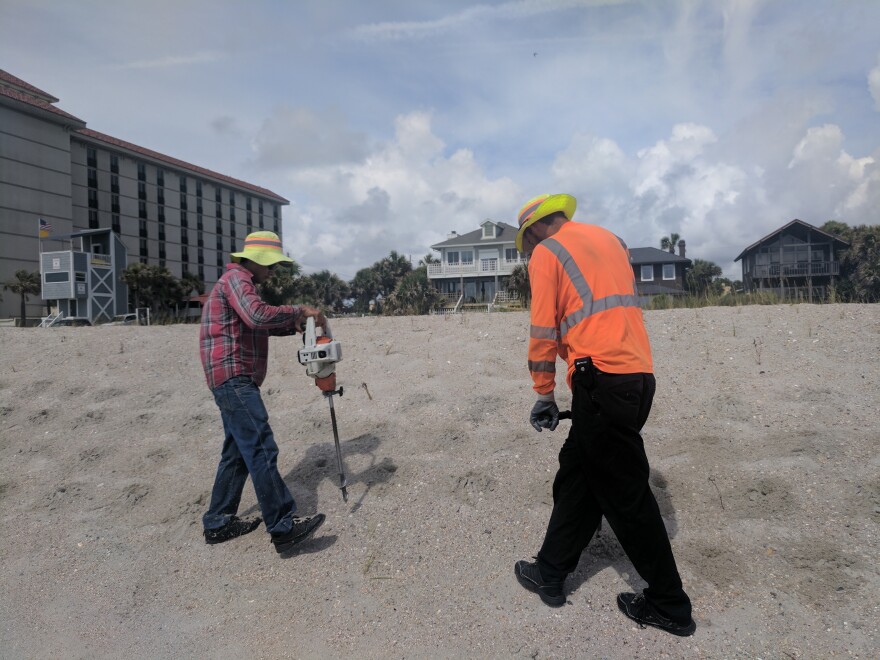Jacksonville Mayor Lenny Curry celebrated the end of a multi-million dollar project to rebuild area beaches after last fall’s Hurricane Matthew.
Workers at Neptune Beach Wednesday used an earth auger, a drill of sorts, to replant sea oats washed away by Hurricane Matthew. It’s the finishing touch on a $22 million renourishment project that Jacksonville Mayor Lenny Curry called a success.
“We’re here today to celebrate what you can accomplish when you work together for the people of the beaches and Jacksonville as a whole,” he said.
Jacksonville kicked in $7.5 million for the restoration, which was on its way to being completed before Matthew struck in early October and had to be restarted.
This week, though, a team of Australian, American and Chinese scientists based at China’s Ocean University released a study concluding sea-level rise is accelerating, and that will mean worsening beach erosion, as Rueters reported.
Army Corps of Engineers Jacksonville Commander Col. Jason Kirk said the corps, which was instrumental in the beach restoration effort, keeps tabs on climate change when planning projects like this.
“When we design the project we look at expected sea level rise from our models and we build in those buffers to build what will be a cost-effective, resilient project,” he said.
Curry has gotten flak over the last couple years for not supporting initiatives advocates considered essential to battling sea level rise and climate change, including dropping out of the Rockefeller Foundation’s 100 Resilient Cities program and, more recently, supporting President Donald Trump’s decision to renege on the Paris Climate Accord, as FloridaPolitics.com reported.
Still, Curry maintains he’s committed to protecting the environment. On Wednesday, he said the city has continued to work towards becoming greener and reducing emissions. That includes increasing curbside recycling, protecting neighborhood tree canopies and JEA’s reduction of coal use.
For now, Kirk said Northeast Florida still has more to gain from funding renourishment projects than it could lose from rising seas washing away its work.
- LISTEN | This story is featured on Redux
Ryan Benk can be reached at rbenk@wjct.org, 904-358-6319 or on Twitter @RyanMichaelBenk





